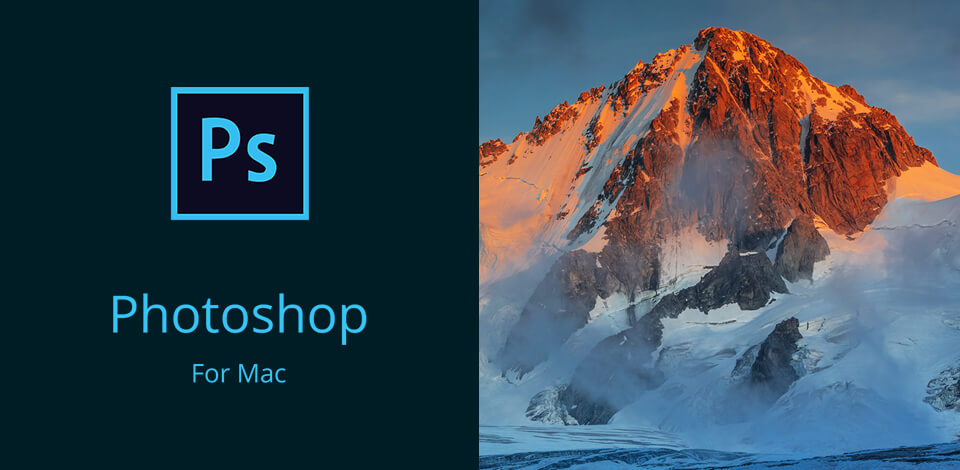
Download this specifically developed Adobe Photoshop for Mac Version if you need a program that offers extensive features for editing and correcting pictures on you MacBook. Unlimited picture post-production possibilities with almost no loss of quality make this program special and set it apart from dozens of other photo editing software for Mac.
Convenient control panel. It provides access to the main menu commands and interface management. The toolbar contains all the tools that may be used to edit a picture. The parameters panel displays which tool is currently selected for use. The palette area features all the tools for manipulating the picture.
Work with layers. Layers palette in Photoshop Mac Version enables users to draw or design different areas of the canvas in layers and stack the layers up in a particular order. In this way, users can manage each item in a mouse click. Even if you make a mistake, it will be visible only in this area of the canvas so that you may fix it, leaving all the other areas of the canvas untouched. The classic painting technique lacks this cool feature.
Support for many formats and color models. Currently, Photoshop on Mac supports the majority of bitmap formats, such as JPEG, TIFF, BMP, PCX and some vector picture formats (WMF). As for the main format of Photoshop, a PSD file, it is compatible with many free Photoshop alternatives.
Ps supports the following color models: RGB, LAB, Duotone, Multichannel, CMYK. In addition, it isn’t necessary to switch between different free photo editors.
Creative Cloud Subscription. Adobe Photoshop Mac is a part of the Creative Cloud subscription. It means that the user has to pay for the program each month. The developer doesn’t provide the opportunity to purchase the program once and for all.
Work with 3D objects. An ability to adapt to the constantly developing technology is what makes Photoshop CC a top-grade product for graphic design recognized internationally. Ps 3D pleases users with the ability to import 3D objects straight into Ps via the cloud software. Besides, users may draw the textures right on the canvas in Ps. Playing the series of pictures linked to the 3D object, picking the pose and facial expression from the animation is possible as well.
Interaction with other programs. Initially, Photoshop software was a bitmap picture editor. Now it offers plenty of possibilities for working with both bitmap and vector graphics. Despite its extensive capabilities, the program is closely related to other picture post-processing tools. There exists a whole line of products – Adobe Illustrator, Adobe After Effects, Adobe Premiere Pro. Besides, Ps interacts with programs by other developers.
An extensive number of tutorials. Since there are so many Ps users who are experts in various spheres, like picture retouching, web development and graphic design, they want to share their knowledge of the program. That’s why the Internet is full of Photoshop tutorials, courses, active forums and educational blogs.
While you haven’t downloaded Adobe Photoshop for Mac yet, examine the program’s system requirements as your computer may be too weak to handle it. Look them through to avoid the issues with the Ps installation and use in the future.
| Processor | Multicore Intel processor with 64-bit support |
| Operating system | macOS version 10.13 (High Sierra), macOS version 10.14 (Mojave), macOS version 10.15 (Catalina) |
| RAM | 2 GB or more of RAM (8 GB recommended) |
| Graphic cards | nVidia GeForce GTX 1050 or equivalent; nVidia GeForce GTX 1660 or Quadro T1000 is advisable |
| Hard disk space | 4 GB or more of available hard-disk space for installation; extra free space is required during installation (unable to install on a volume that uses a case-sensitive file system) |
To work in Photoshop for Mac more effectively, you need to get Photoshop actions that are aimed at adding various effects to pictures. This particular set of free Ps actions is suitable for portrait photography and will help you enhance the shots in a matter of minutes.

Even though the Double Exposure effect is typically used to combine landscape and portrait pictures, you may experiment with other genres and see what kind of creative outcomes you can get!